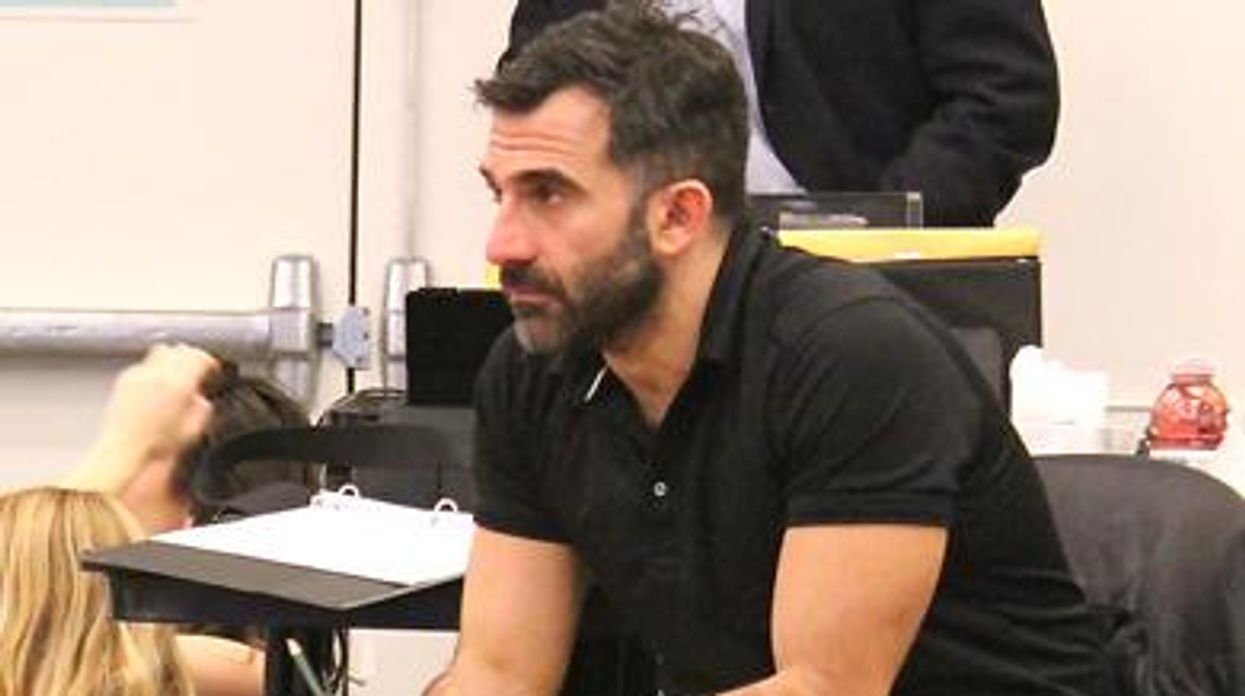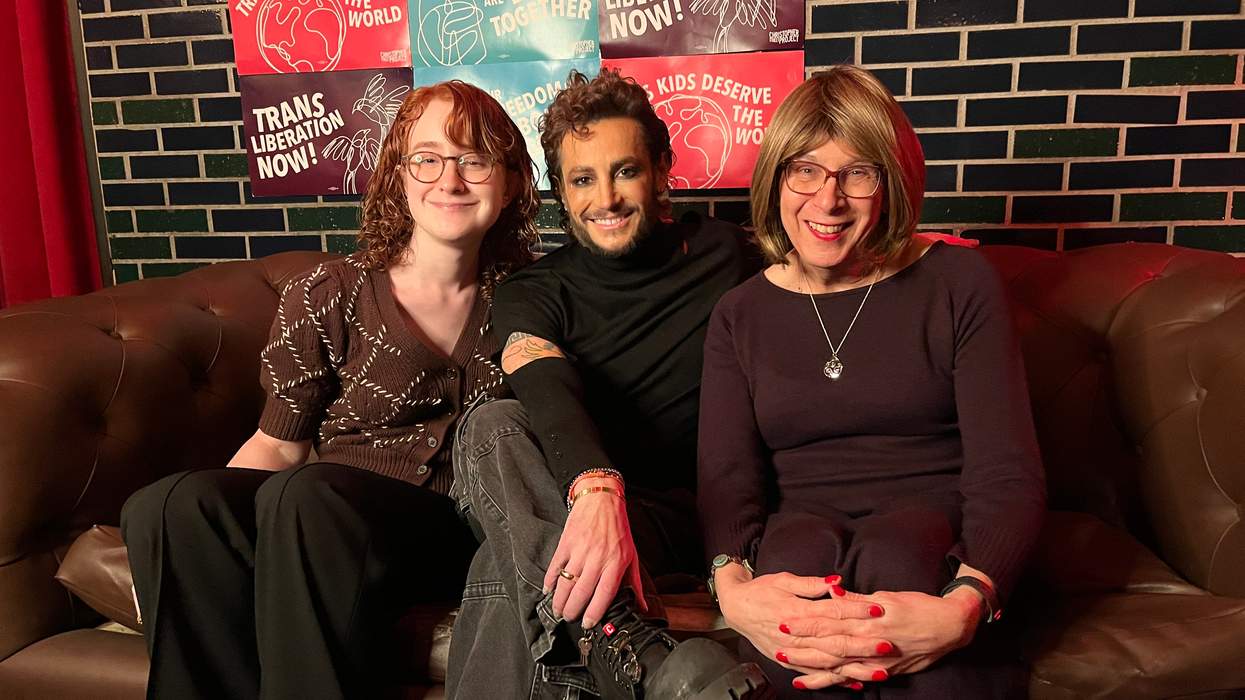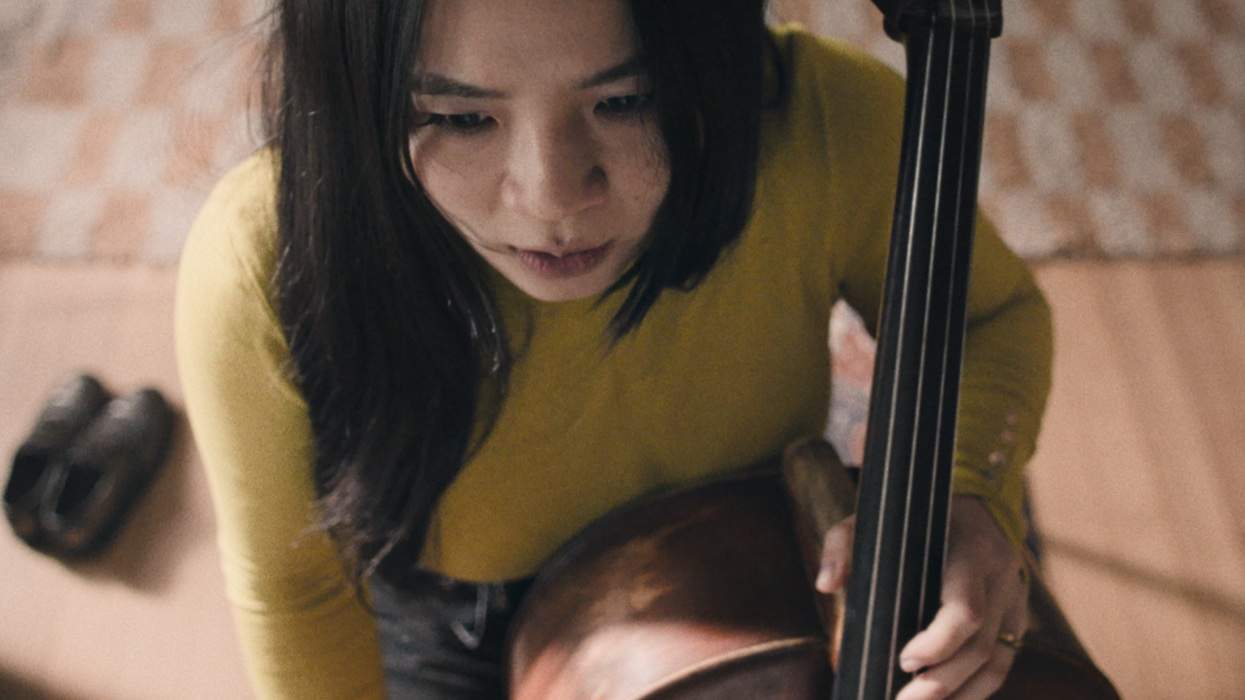For a self-described "introvert" who'd never seen a Broadway musical before he auditioned for one at 16, choreographer Joey Pizzi has made great strides to create a name for himself. The limber 41-year-old Rhode Island native has racked up a lengthy and impressive resume as both a performer and choreographer, including the star-studded film versions of Broadway musicals Chicago, Dreamgirls, Hairspray, and Nine. Most recently he (along with co-choreographer Denise Faye) put Cher and Christina Aguilera through their paces in the lavish big-screen musical Burlesque (now available on DVD and Blu-ray).
Pizzi takes a break from his latest gig as associate choreographer on the hotly anticipated new Broadway musical adaptation of Catch Me If You Can (which opens April 10 at the Neil Simon Theatre) to share stories about working with leading ladies such as Cher, Jennifer, Meryl, and a cross-dressing Travolta, and what Liza serves for dinner on New Year's Eve.
The Advocate: When did you realize you had a talent for dancing?
Joey Pizzi: I started taking dance classes when I was around nine or 10. I'm not sure I realized I had a talent for it, but I absolutely loved it. I had a crazy amount of energy apparently and the options were to send me to sports with my brother or to dance with my sister. [Laughs] What I realize now is that I found dancing to be this safe haven. I was a really shy kid who was just sort of figuring out my sexuality and I was in this room full of girls that I felt completely comfortable with and I was able to express myself in ways that I hadn't done up to that point because I was so introverted.
Growing up in Rhode Island, how often did you get to New York to see theater?
I had absolutely no theater in my childhood. I came from a very working class Italian-American family. There were a lot of family gatherings and a lot of sports, but there was no theater at all. I didn't even hear any Broadway show albums until later. I never even visited New York until I went there to audition for a show when I was 16.
One of your earliest stage credits is Cats. How did you get the job?
I was working in Orlando, Florida and at that point thinking it was the apex of show business. A tour of Cats came through and there's such a pool of talent in Orlando that the tour had an audition. I went and they called a month later and asked me to come to San Francisco to join the tour. When you're 18 and in it, it seems like the peak of show business.
I'm going to give you the opportunity to clear up something once and for all. How do you account for what some consider the mystifying success of Cats?
[Laughs] Well, in the beginning I think it was just the genius of marketing. They didn't release any visuals. All you saw were these eyes and a big question mark. I think that started it and it was the '80s when everything was about excess. As awful as the show is, it had a lot of firsts. It had an epic song "Memory" and an epic moment when the tire rises up the heavens. There was this sense of it being high brow because it was among the first of that wave of British imports that came to town. I wish I knew why it was successful because then I'd have all that royalty money.
Last year you worked on the Cher-Christina Aguilera musical Burlesque. Steven Antin, the film's writer-director, told us about all the classic films he referenced while planning the film. And there are many scenes that are, let's be kind and say they're reminiscent of Cabaret.
Reminiscent is a good word for it. [Laughs]
How involved was Steven in helping you create the Burlesque choreography?
Steven was very hands-on with what he wanted the choreography to be. The script was just a jumping off point. Some numbers, such as "Express" were already very fleshed out by the time we got there, but other songs were just a blank page, so it was up to us to choreograph them. A song like "A Guy What Takes His Time" was one of those. Steven would say, "Here's the song. Find the funny." He'd say that a lot, which I really appreciated. A number that's just sexy gets really dull after a while. He'd always come into the room where we were working and have thoughts and it would inevitably get better. It was often about finding the humor. It certainly made me grow as a choreographer.
How extensively did you research burlesque as an art form?
We had a lot of books and video archives. We were choreographing in the same space that the set designers and costume designers were working, so we shared each other's research materials. We looked at literally every possible reference we could find. Even though it was called Burlesque we didn't want every song to be a strip number.
How did the final version of Burlesque measure up to the way you'd envisioned it?
I was pleased. It's a huge, huge undertaking to do a musical. We had enough footage for a four-hour movie and I think Steven cut it down into a well-told story.
I don't mean this in any disrespectful way, but Cher didn't move very much in the film. Was this contractual or does she not respond to choreography?
[Laughs] I wasn't involved in any meetings to know if there was talk about her doing other numbers, but I think her limited time was a factor. She's really busy and we only had the month of January with her, so I think it was more about effectively using her time. I love the numbers that she did. With the amount of time we had her I don't she could have handled more than she did. I was really proud of her.
How easily did Christina pick up the moves?
She was the hardest worker on the whole movie. She did a huge amount of dancing as the lead. When you're a pop star you have a stable of people you frequently work with, including your choreographer, and you can become very consistent. Throwing herself into a new realm with new choreographers forced her to expand her movement vocabulary a lot. I think she stepped out of her comfort zone on Burlesque.You've worked on some of the most notable stage and film musicals in recent memory.
I've been incredibly lucky.
What are your memories of working with Catherine Zeta Jones on Chicago?
Catherine was an old pro. She came from that world, having done musicals in London's West End. She was there day one in her rehearsal clothes, in her leotard and tights, and was ready to go. She had some very difficult dancing to do. We rehearsed these things as if we were rehearsing Broadway shows. It wasn't as if she was in a room alone. Everyone was there together. She was just like all those other amazing girls and guys. She put herself in there, was sweating, and questioning it. She was amazing to watch.
But Renee Zellweger didn't have that background so did she approach it differently?
Renee slowly and methodically chipped away at her performance. She ended up being just as good as Catherine, which was amazing as she'd had no point of reference for how to do something like this. She just watched and learned. She was like the tortoise and the hare, making it to the finish line.
What was your experience working on the film version of Dreamgirls?
Dreamgirls is one of my favorite jobs ever. Often in musicals there will be one person that you'll mainly deal with and I worked a lot with Jennifer Hudson. Working with Jennifer, who blew the roof off the joint every time she'd sing, was amazing. And Beyonce has the most spectacular work ethic. What I didn't realize about pop stars is that their lives are booked two years in advance. She had interviews and concerts and was busy all the time but always knew what she was doing. She practiced on her own all the time. She was such a pro and such a joy to be with. Jennifer was primarily a singer so she had no real experience with moving, but she just worked so hard and was soon holding her own with Beyonce.
Hairspray looks like it was a lot of fun to work on.
I'm currently working on Catch Me If You Can with Scott Wittman and Marc Shaiman, who wrote the music for Hairspray and are two of my dearest friends in the world. Hairspray was a joyous experience because I got to work with those two guys. And it's not such a bad thing to be in the rehearsal room with John Travolta, having a good time with him. John and I would have these sit-downs on breaks from rehearsals. He loves to dance and the whole world of musicals and I loved spending time with him. He's such a great actor and he was very concerned with his character's motivation.
You worked on Nine with Daniel Day Lewis, who isn't someone thought of as a musical star.
Daniel's movement was very much based on his character being this athletic, macho guy and a lot of it was based on his inner turmoil. I loved working on Nine. I have a long history of working with Rob Marshall. I loved Daniel. He's such a great actor and was so sweet. All of those actors were great, Judi Dench, Marion Cotillard, they were just startling in their professionalism and their commitment. It was a beautiful thing to be a part of.
That's refreshing to hear. I imagined there'd be a lot of egos among that high powered cast.
I credit it to Rob. He just sets it up from the top that we're all in it together and we're going to make this beautiful film together. The great thing about working on a musical is you do form these bonds like a family. There was such harmony on that set. I'd be having lunch at a table and there'd be Sophia Loren, and Judi Dench, and Nicole Kidman and they're talking about baby clothes or whatever. That project was surreal. I had to pinch myself. That experience was a Fellini movie in itself.You worked with Meryl Streep on the romantic comedy It's Complicated. I don't remember a dance sequence in that film.
A lot of people don't realize that even if a movie has someone doing a waltz in the background, it requires a choreographer. There was a scene where Meryl and Steve Martin got high at a party and began dancing intimately and romantically. Alec Baldwin sees them and there's a shift in their relationship. The intimacy of the dancing was a plot point.
How was your experience with Meryl?
Meryl was amazing. Amazing! She had all these questions like, "What music would my character be inspired to get up and dance to?" She was interested in the reality of it all. Being on the set watching these amazing people working is something few people get to see.
Some of the Broadway shows you've worked on, such as Cry-Baby and Urban Cowboy, have been high profile and arrived with a lot of fan fare but weren't big hits.
It's a difficult thing to put on a show. Everyone goes into a job and wants it to be a really beautiful thing and be something that they're proud of making.
Do you know when you're working on certain shows that they may be great from an artistic or technical perspective but that audiences might not respond?
You have to make a lot of difficult choices on a daily basis and once you make those choices you have to stand behind them and believe in them. Sometimes you're on the right track and sometimes you find later that it was possibly the wrong track. Time is so of the essence that you have to make choices and just go forward. Sometimes you can change it all. I've seen first previews that were disasters and get turned around.
For me, the most exciting credit on your resume is Minnelli on Minnelli. Give up your favorite Liza story.
[Laughs] It was 1999 going into 2000. I spent New Year's Eve at her apartment on the upper east side so I called it the Minnellium. [Laughs] Having fried chicken at Liza Minnelli's house was the best way to go into the new millennium.















Charlie Kirk DID say stoning gay people was the 'perfect law' — and these other heinous quotes
These are some of his worst comments about LGBTQ+ people made by Charlie Kirk.